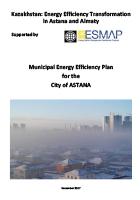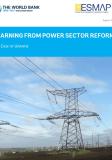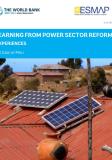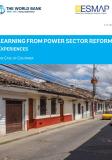Publications
This report outlines the results and key findings of an energy efficiency (EE) study - "Energy Efficiency Transformation in Astana and Almaty" - conducted by the World Bank between November 2016 and November 2017 in Astana, using the Tool for Rapid Assessment of City Energy (TRACE 2.0). The objective of this study is to outline an urban EE strategy for the next 12 years for the city of Astana, up to 2030, by assessing the energy performance of the municipal service sectors and identifying and prioritizing EE opportunities along with a sound implementation plan. The overarching objectives of the municipal EE plan are to reduce energy consumption, diminish related expenditures from the municipal budget, and improve municipal service delivery for the city residents. The plan includes a host of qualitative targets, from reducing the Greenhouse Gas (GHG) emissions and Primary Energy Consumption (PEC), avoiding an increase in the energy bills to improving performance of local public service providers and enabling the environment to attract private investments for EE interventions. The methodology used comprises four steps, namely assessment of the energy performance, prioritization of sectors having the highest energy savings potential, and drafting and implementation of the EE plan.
Zhang, Yabei; Behnke, Rainer Florian; Mot, Ana Maria Manuela; Kushanova, Aksulu; Liu, Feng. 2017. Municipal Energy Efficiency Plan for the City of Astana. World Bank, Washington, DC. © World Bank. License: CC BY 3.0 IGO. https://openknowledge.worldbank.org/handle/10986/28925



